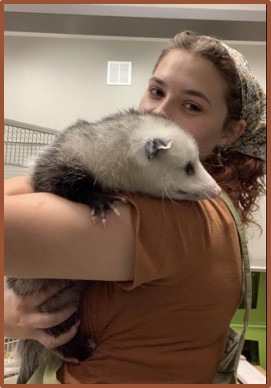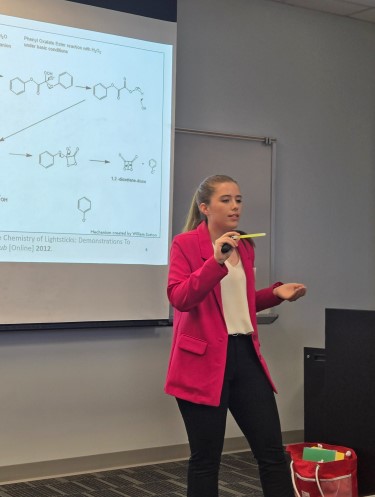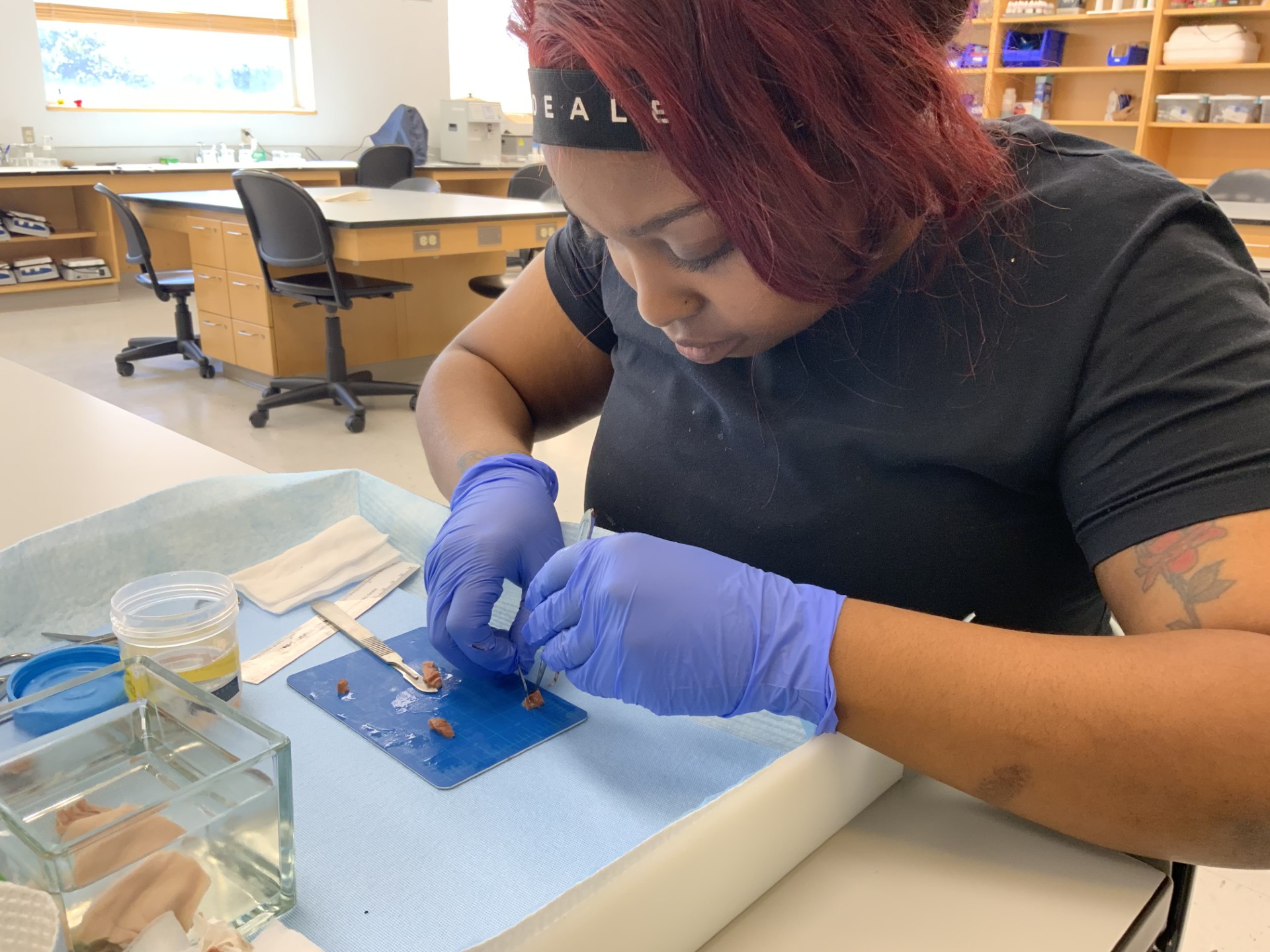Undergraduate Research & Internships in the Department of Natural Sciences
Why Participate In research or an Internship?
-
Apply classroom knowledge to real-world scientific problems
-
Gain valuable technical and professional skills
-
Build a network with researchers, professionals, and peers
-
Enhance your resume & graduate school applications
-
Make a meaningful contribution to ongoing research & community projects

Undergraduate Research & Internship Examples
Investigating the Antioxidative Properties of Common Grocery Items using Fluorescence Decays of Water-soluble Dyes

Honeybees on the Cochran Campus
Middle Georgia State University has two hives of honeybees on the Cochran campus. Professor Kirby Swenson uses the hives to teach students about beekeeping, the importance of bees and other pollinators to ecosystems, and to get students involved in research about bees. Some future research plans include using substances from bees and beehives to treat diseases, figuring out how to reduce beehive losses from such factors and viruses and parasitic beetles, and experimenting with ways to increase honey production. A student honeybee club also helps students get involved in learning about and researching honeybees. Contact Mr. Kirby Swenson for more information.

Internship In Histological Techniques
Students working with Dr. Christine Rigsby get hands-on experience with histology—learning how to prepare and study tissue samples. Students work with methods like tissue fixation, processing, and embedding, and learn how to cut tissue sections using a microtome. Students also prepare stained slides using different staining techniques and capture images of those slides with digital imaging software.
CONTACT: Dr. Dawn Sherry, Chair, Dept Nat Sci for more information!
